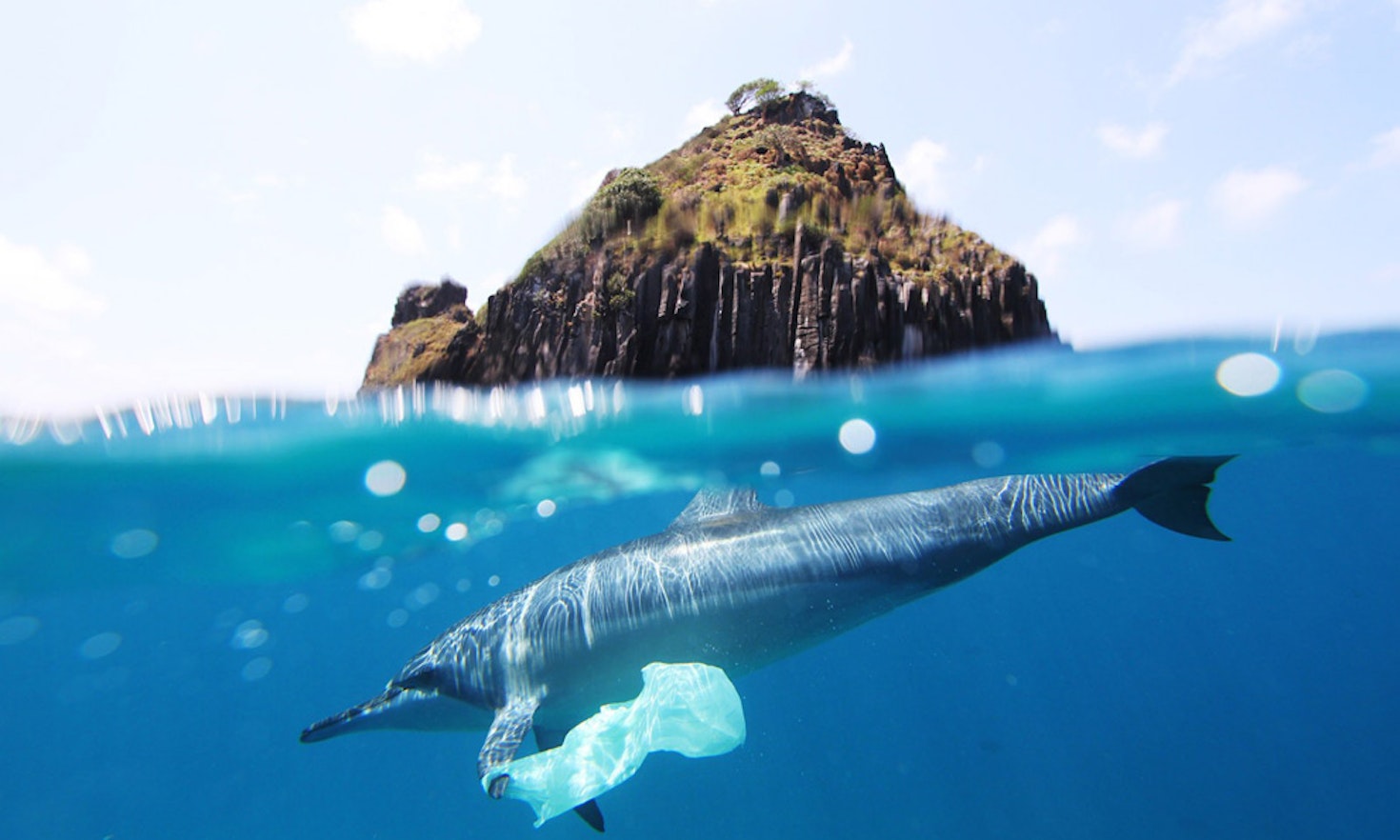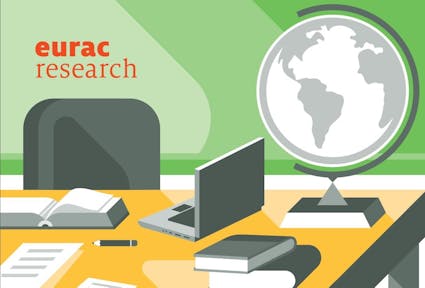A European strategy to fight marine plastic pollution?

Marine plastic pollution: an increasingly serious problem
Since 1950, world plastic production has dramatically increased and in 2016 Europe produced 64.4 million tons of plastic. In particular, as revealed by data from PlasticsEurope (2018), countries like Germany (24.5%), Italy (14.2%), France (9.6%), the UK (7.5%) and Spain (7.7%) dominate the European consumption of plastic. Up to 60-80% of the world‘s litter is in the form of plastic and according to the Ellen Mc Arthur Foundation (2016), by 2025 it is expected there will be 1kg of plastics for every 3kg of fish in the oceans and by 2050 there would be more plastic than fish. As evidence shows, marine plastic pollution has several damaging impacts. Plastic debris is threatening sea life and ecosystems in several ways: ingestion, entanglement, ghost fishing, and the transportation of non-native and invasive species. It has an impact on human health and food safety and can results in reduced recreational opportunities and loss of aesthetic value. Plastic litter has also several direct and indirect economic consequences for commercial shipping, fishing, and tourism sectors.

Figure 1- Plastic production from 1950 to 2017 – Statista 2018
What is the European strategy to fight marine plastic pollution?
In January 2018, the European Commission adopted a Strategy for Plastics in a Circular Economy, which focuses on the creation of a more sustainable plastic economy based on recycling. In order to implement this strategy, the EU identified a set of actions for national and regional authorities and industry such as the improvement of the design of plastic products, the separate collection of plastic waste, and the modernization of the EU’ s recycling capacity or the creation of viable markets for recycled and renewable plastic. In order to address the issue of marine litter, in May 2018, the European Commission put forward a proposal that builds on the 2015 circular economy action plan and on the 2018 Strategy for Plastics in a Circular Economy. This proposal was approved in October 2018 and institutes a ban of single-use plastic products such as straws, plastic cotton buds, cutlery, and plates, by 2021. Although plastic pollution is primarily a global problem that requires global solutions, this is a first important step in combating plastic pollution and the EU can and should be a key player in finding a solution and leading at a global level.
The framing of plastic pollution – the European Commission DG for Industry and Growth and the DG for Environment
The framing of an issue or event in a certain way creates and conveys a particular meaning, which can lead to the formulation and implementation of certain solutions or can place an issue higher up on the political agenda (Jordan and Adelle, 2013). As argued by Foucault, discourse has the power to regulate and coordinate actions and thus influence decision-making. Therefore, using John Dryzek’s environmental discourse classification, I conducted research on the plastic pollution discourses of the European Commission DG for Industry and Growth and the DG for Environment.
Why the European Commission? The framing power should lie more within the European Commission because of its relevant activist role and since it provides all the documents upon which the European Parliament and the Council subsequently act.
What has come to the fore during my research is that the DG for Industry and Growth has largely adopted the ecological modernization discourse and also stressed the need for reconfiguration of the economic system from a linear to a circular approach. In this way, plastic waste, which should be considered a valuable resource, could be reused in the economy and bring both profits to the industry sector and protect the environment. The DG for Environment mainly adopted the sustainable development discourse, which promotes an open-ended economic growth that respects environmental limits and emphasizes a distributive justice frame. It is interesting to compare the diagnostic (the definition of the problem) and the prognostic framing (the solution to the problem; the main strategies, tactics, and goals to solve it) of plastic pollution discourses. The problem of plastic pollution is mainly defined by both DGs in positive terms and plastic waste is seen as a benefit, especially for the plastic industry. The main strategy for solving the problem is to rethink and improve the plastics economy through the adoption of a circular approach and actions are required by different actors at the local and global levels. The need for collaboration at different levels supports a multilevel governance system, where decisions are taken at different centers of power reflecting the concept of the decentralized network of democratic pragmatism discourse.
I would argue that the solution should focus both on the individual’s responsibility to change the irresponsible throw-away culture and industry’s need to reform the production model from a linear approach of “take, make and dispose” to a circular one of reduce, reuse, and recycle.
My view is that since the problem has primarily been created by industry, it has the main responsibility to contribute to its solution. An illustration of this is the Producer Extended Responsibility, which makes the producer responsible for the treatment of post-consumer products and encourages the prevention of waste at source (OECD, 2018). Furthermore, I think that the adoption of a circular economy for plastics is crucial in combating the problem of plastics. According to the circular approach, plastic re-enters the economy without creating waste and therefore decreases the environmental impact and has huge competitive advantages (Ellen Mc Arthur Foundation, 2016). I support the DG for Industry and Growth’s idea that plastic waste should not be seen as something which has to be thrown away but as a valuable resource to reuse in the economy. This idea should be promptly adopted by all industrial sectors as according to calculations released on the 1st of August 2018, the Earth Overshoot Day, we have started to overexploit the resources of the Planet and now use more resources than those which can be regenerated by ecosystems (Fabbro, 2017).
With regard to the individual, we play a fundamental role because through our consumption choices we can influence industrial production. Therefore, a change in our plastic dependency and throw-away culture is extremely important. Plastic campaigns, educational workshops, dialogue and encouragement by Environmental NGOs are crucial in raising public awareness and in fostering a humble attitude to nature that might make people work for a plastic-free environment. If one individual behaves in an irresponsible way, other people may follow this poor example. I believe that people should be involved in better understanding and appreciating the seriousness of the problem, for example, through the creation of social plastic banks, where individuals can bring used plastics and receive money, items or services in return. What is important is to convince people to collaborate and think in terms of the community good because if people think only of themselves everyone suffers. I suppose that a common conception is that once plastic is thrown away in the right bin, one has been a responsible citizen and does not need to think about where the plastic ends up, but this is not enough. Being an environmentally responsible citizen means developing an ecological consciousness, which fosters a culture that avoids disposable and convenient choices and is based on the idea that everyone has to contribute to a non-polluted planet. It is true that when someone goes shopping in the supermarket, most of the goods are packaged in plastics and, therefore, it is difficult to avoid it. However, I believe there are some solutions to this problem such as the design and production of packaging with other recyclable materials, the creation of plastic-free supermarket aisles or the shopping in zero-kilometers shops, where goods are usually plastic-free. For example, the British Prime Minister, Theresa May proposed some policies to combat plastic waste such as plastic-free aisles in supermarkets. I suppose this proposal is a good way to decrease citizens’ demands for goods packaged in plastic and, in turn, it might encourage industry to change the design of plastic products.
The current tide of plastic is overwhelming and cannot be solved by individuals or the industrial sector alone. Other actors, such as governments, international organizations, and associations should intervene and support the fight against plastic pollution.
 | Sara Bizzotto is a recent Master graduate in European and International Studies at the University of Trento. She is passionate about environmental policy, European public affairs, multilingual communication and travelling. |
Citation
This content is licensed under a Creative Commons Attribution 4.0 International license except for third-party materials or where otherwise noted.







